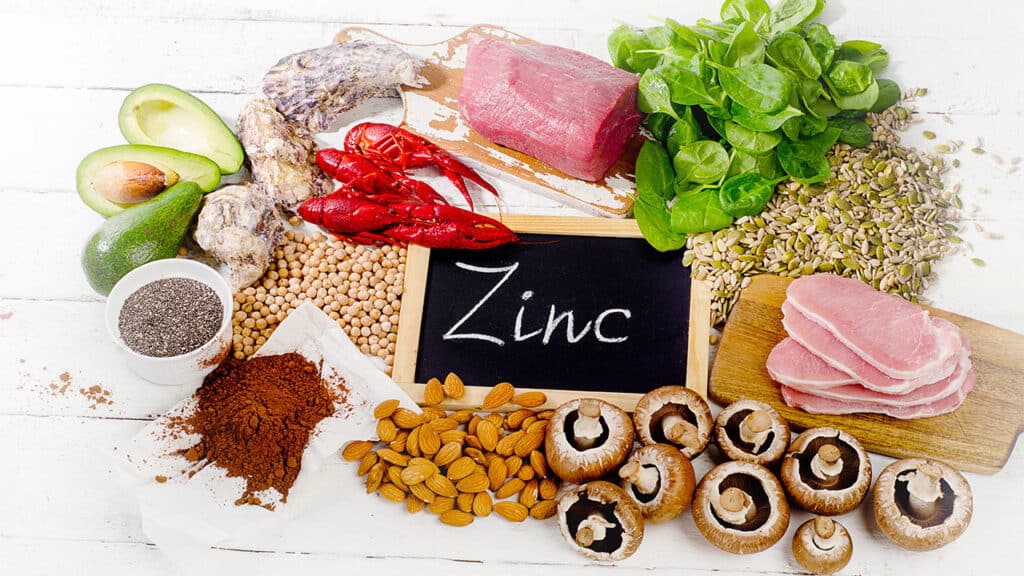Without zinc, we wouldn’t have brass. On its own, zinc is used in everything from paint to deodorant and batteries. And, of course, it is an essential mineral, which means humans can’t survive without it but also can’t produce it ourselves. Let’s look a little deeper at how a metal with such a diverse range of uses affects our bodies (https://ods.od.nih.gov/factsheets/zinc-HealthProfessional/).
Zinc is second in abundance only to iron in the body’s trace minerals. There are hundreds of enzymes that don’t work properly without it. Some of its biggest roles are in growth and recovery. If you have a cut or scrape, zinc helps it heal. If you have an illness, zinc helps empower your immune system to fight it off. It even contributes to the production of DNA.
If you have a zinc deficiency, you may heal slower and get sick more easily. You could be tired, depressed and have trouble paying attention. Diarrhea is common. You might lose weight, your appetite, or even your hair. There are a variety of skin problems that can stem from a zinc deficiency, including rashes, sores and ulcers. Your senses of taste and smell could be affected. It also impacts sexual functioning and fertility, and if you’re pregnant, it can cause problems for the baby.
How much zinc you need depends on your age. You also need more when you’re pregnant to ensure you and the baby receive enough. Still, most people receive the necessary amount from their diet. The single biggest source of zinc for humans is oysters, but if you’re in America, you probably get most of yours from beef. You can find it in other meat, fish and seafood, as well as eggs and dairy. The zinc in whole grains, nuts and beans is harder for the body to absorb and therefore works less effectively.
In parts of Sub-Saharan Africa, Asia and Latin America, they reinforce some flour with zinc to make up for a lack in the soil and regular diets. Even if you eat enough zinc, however, some conditions, such as sickle cell disease, chronic kidney or liver disease, Wilson’s disease or mercury exposure, can increase your risk. Acrodermatitis enteropathica is a disorder that affects the body’s ability to process zinc.
As you can see, zinc is pretty important, and you should do what you can to ensure you have enough.




